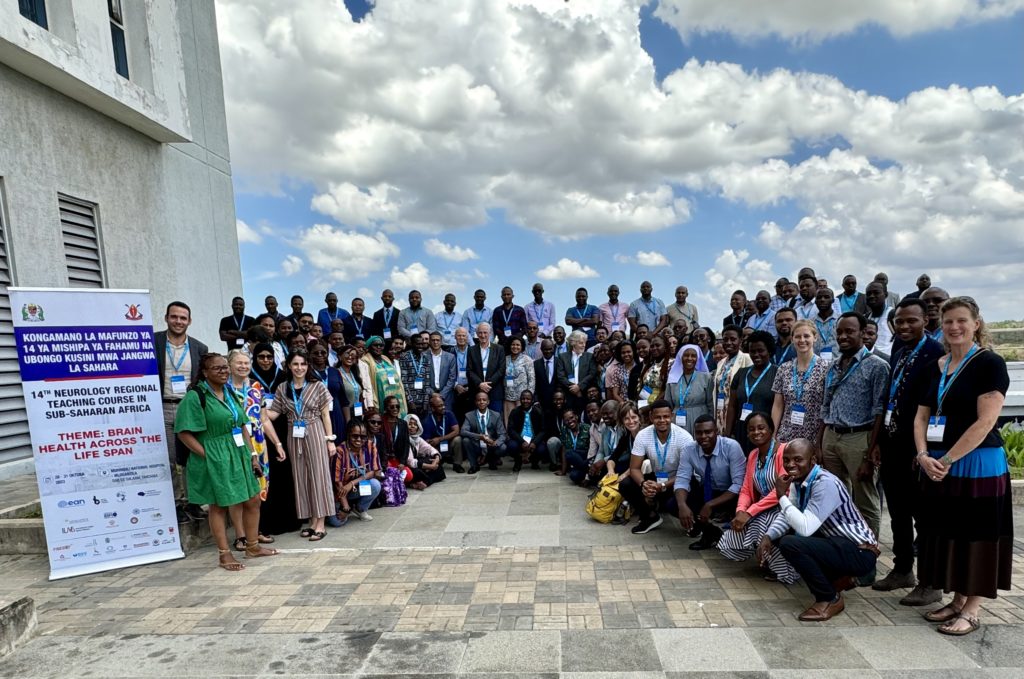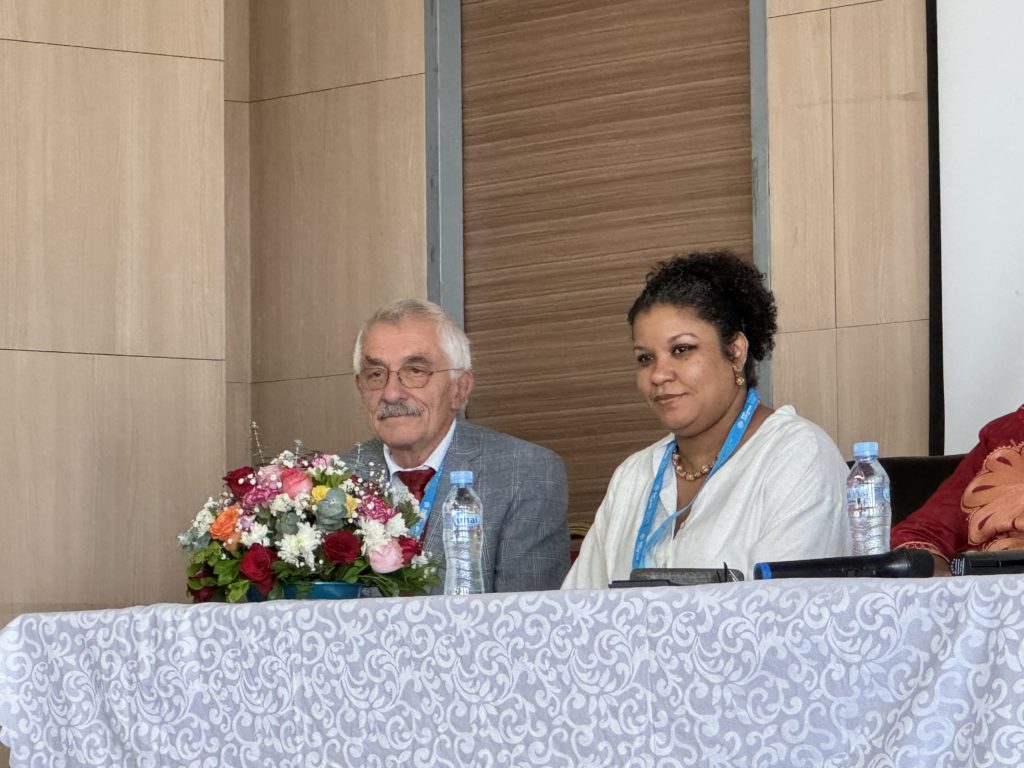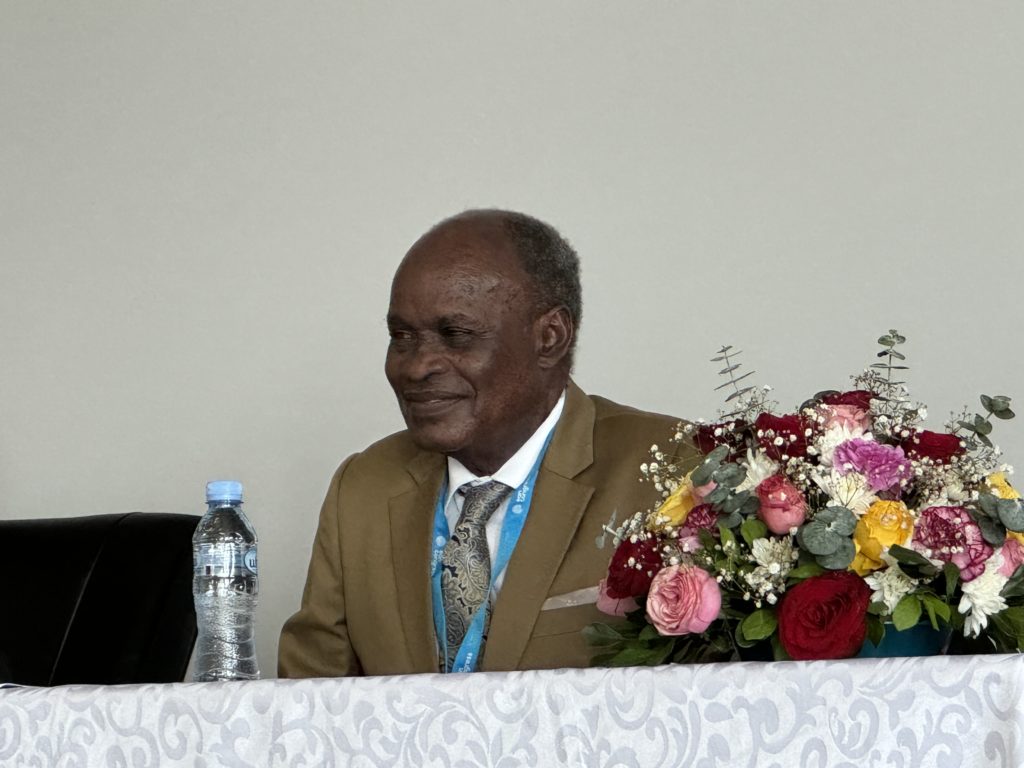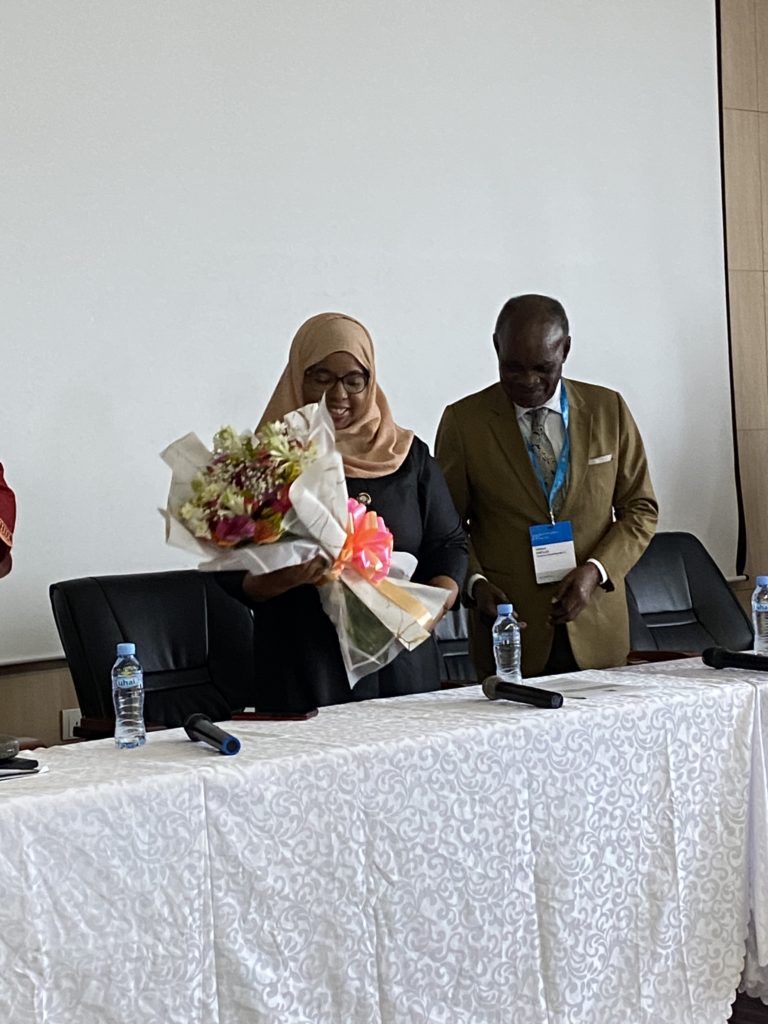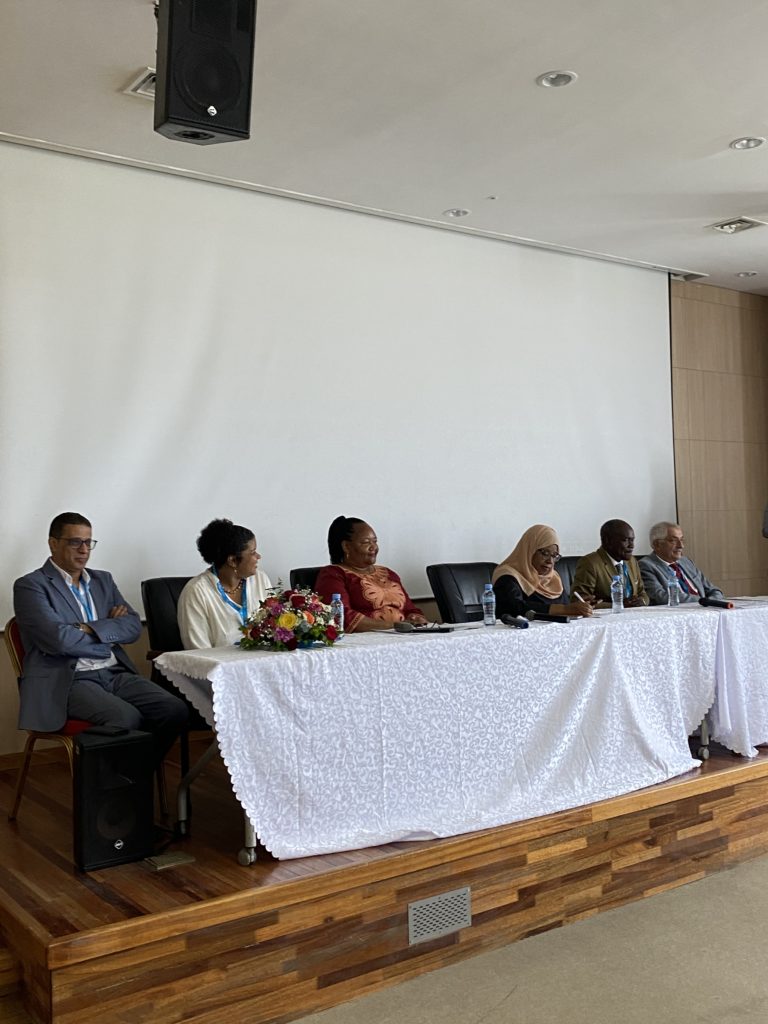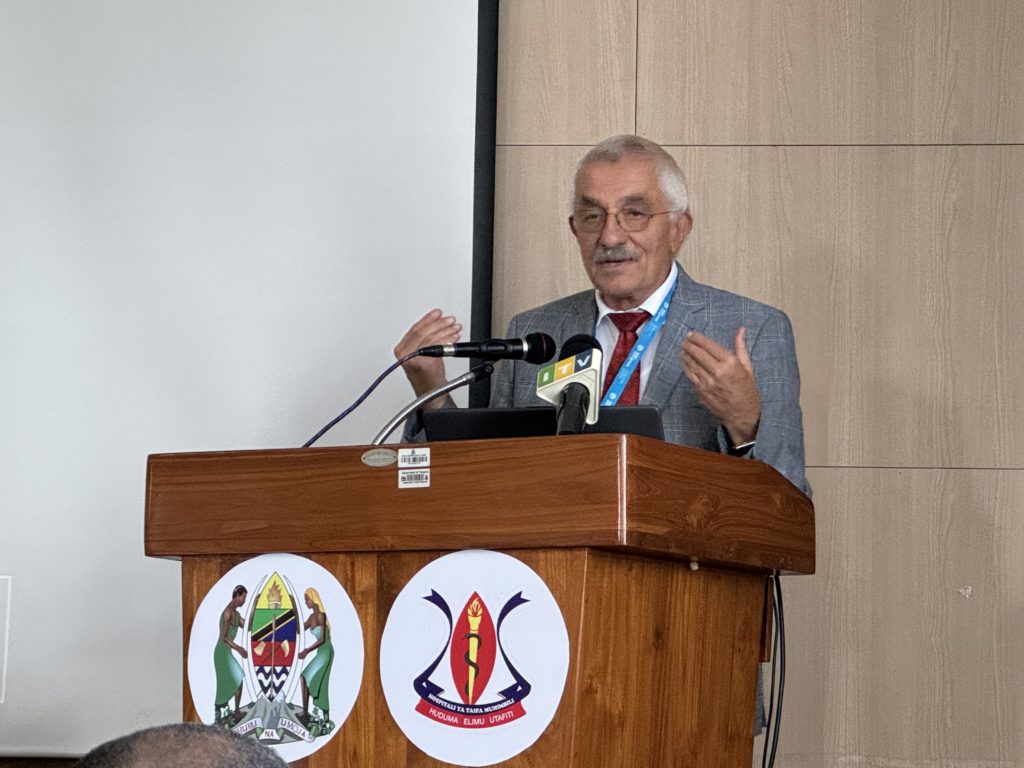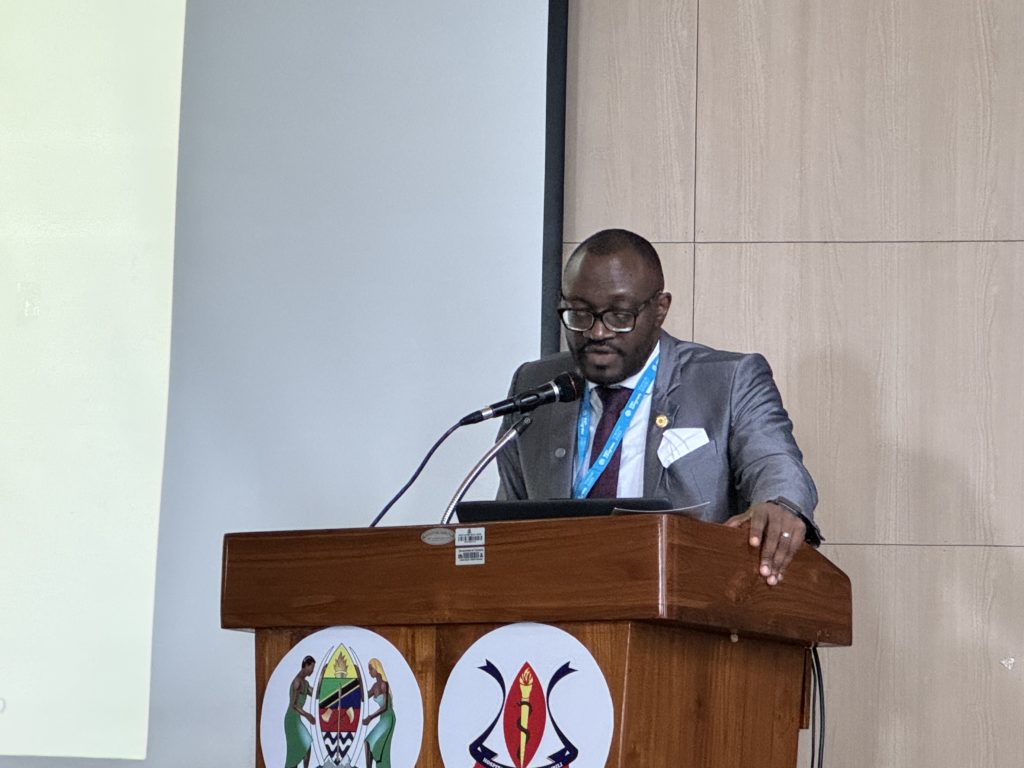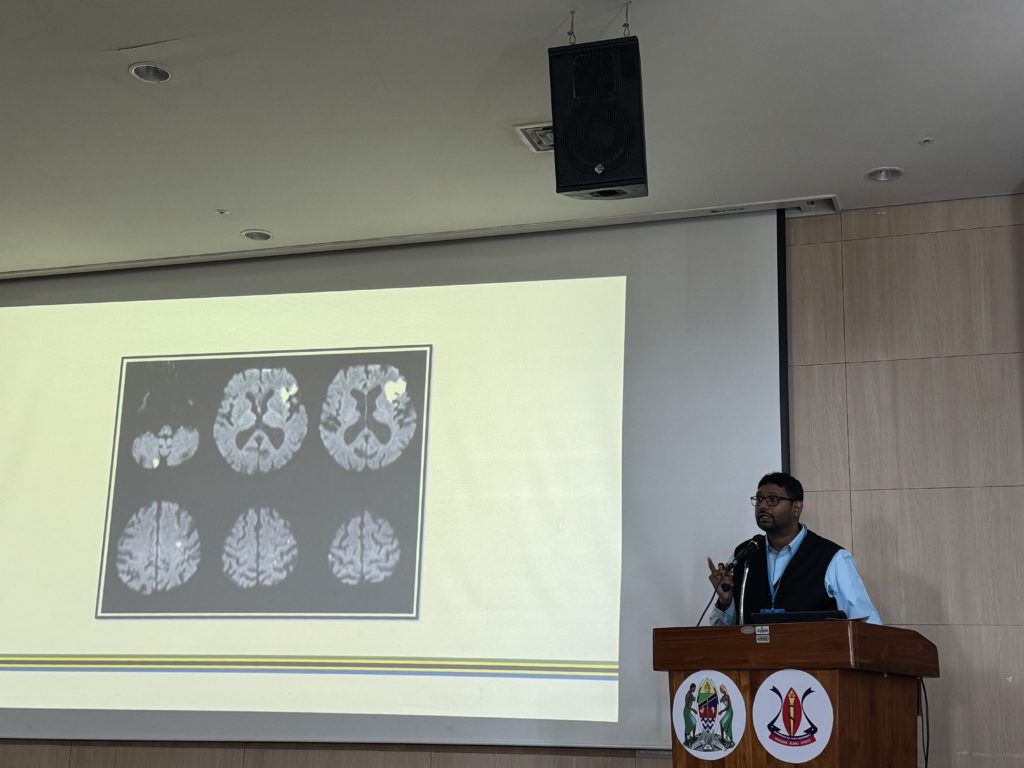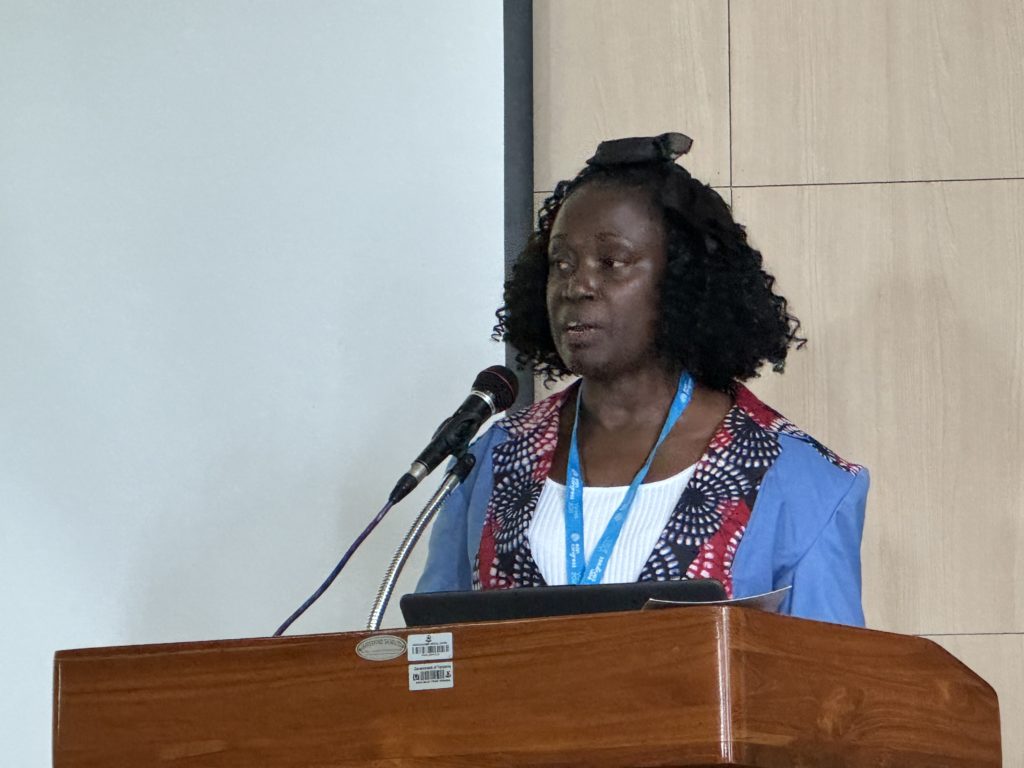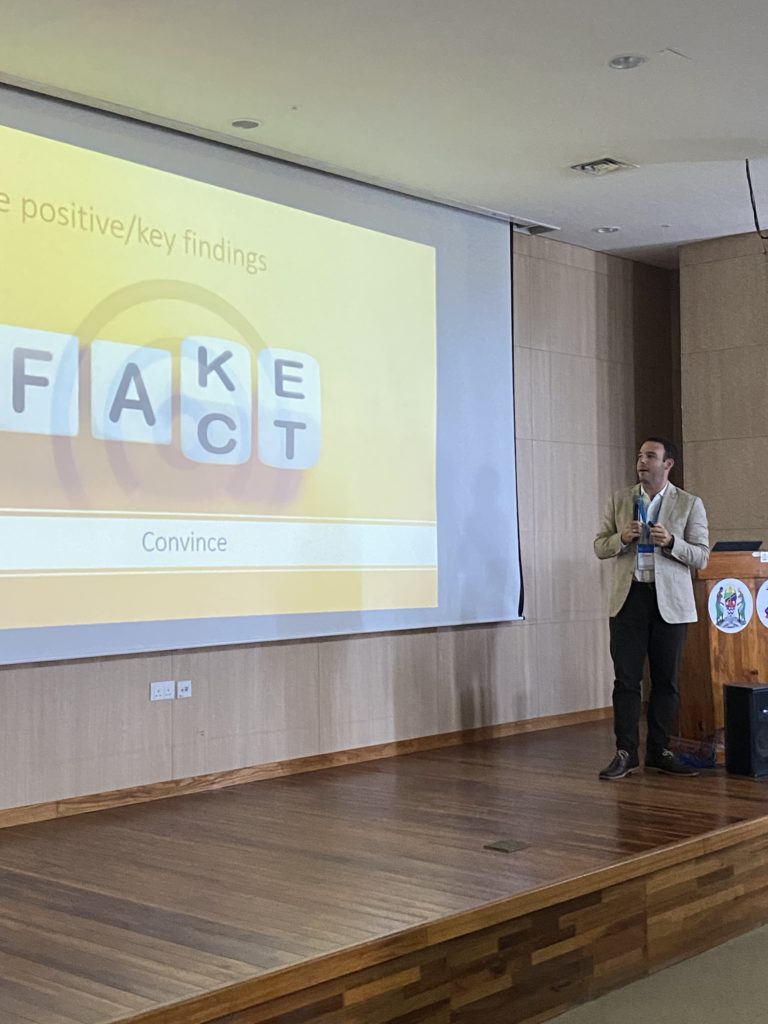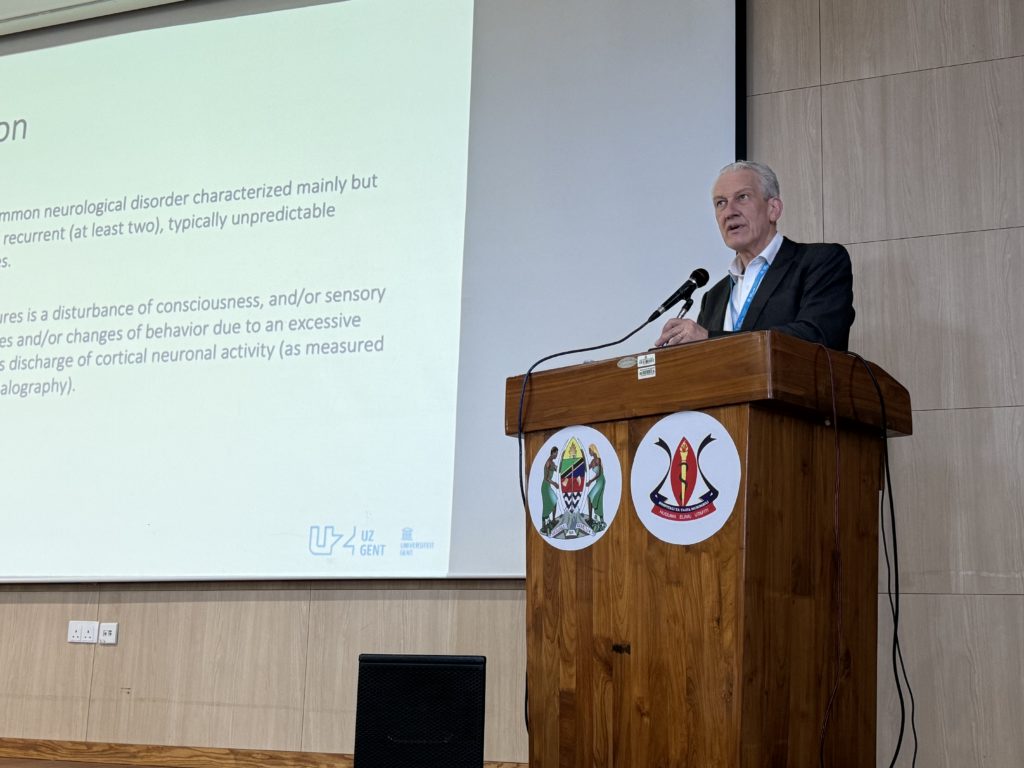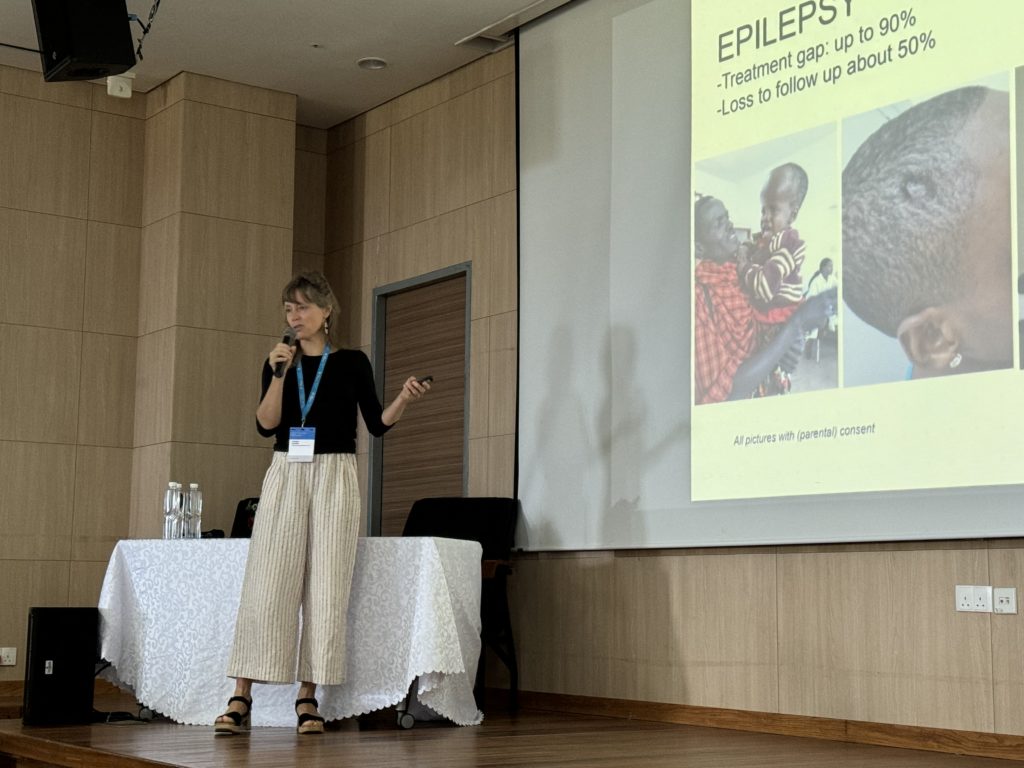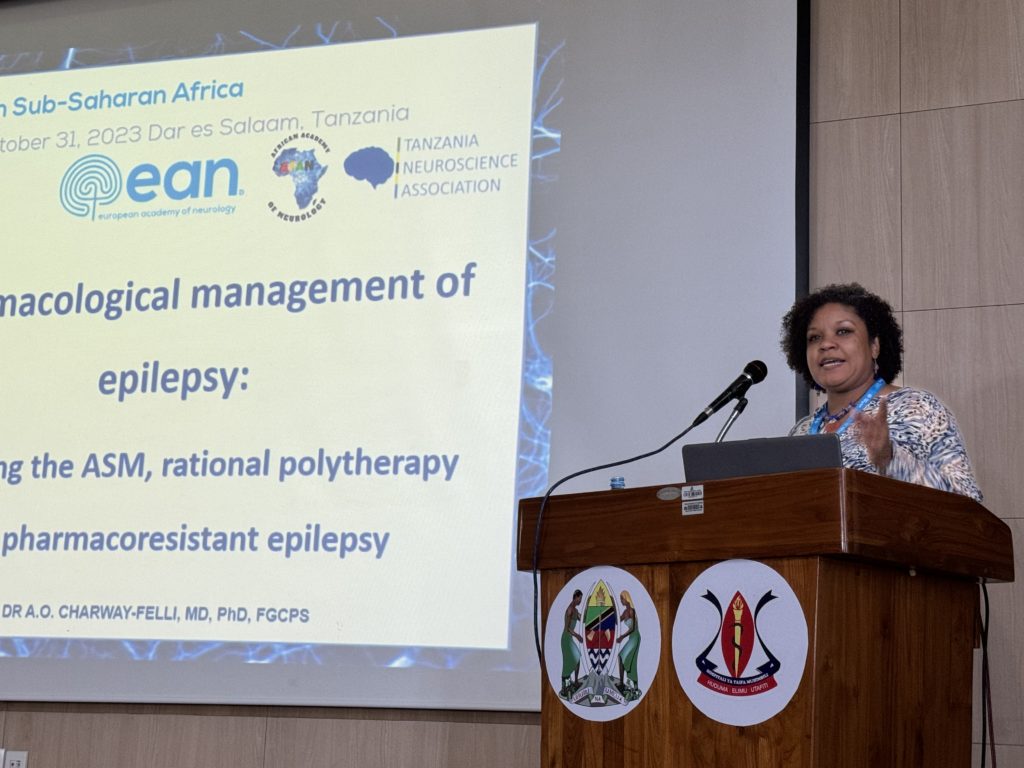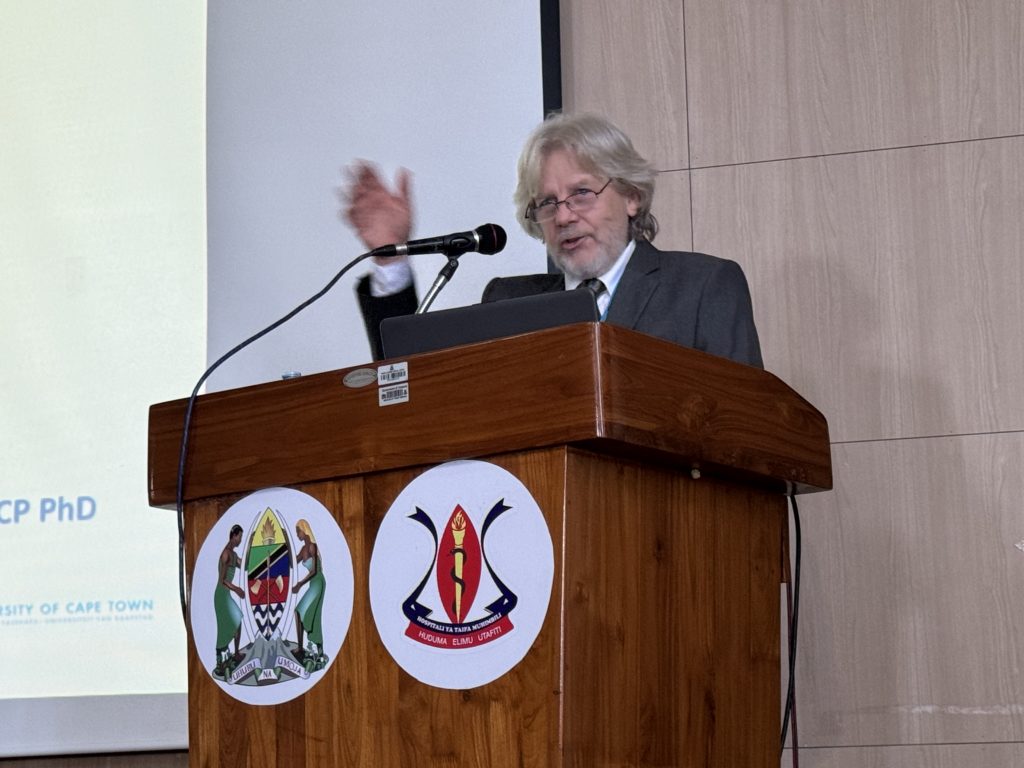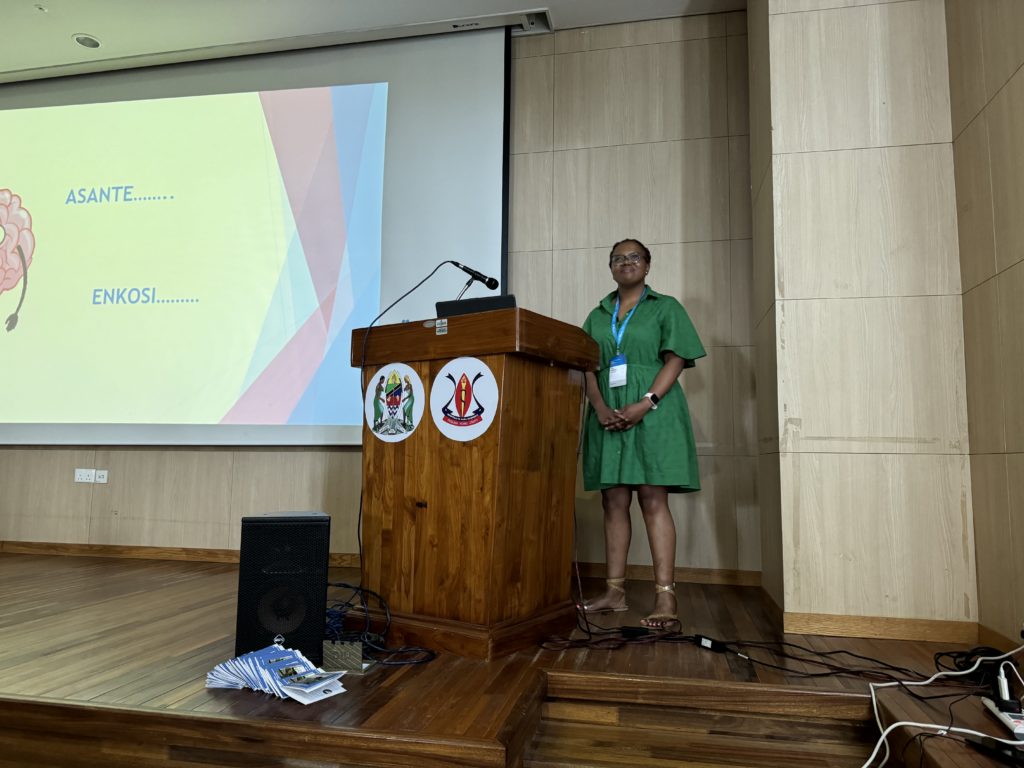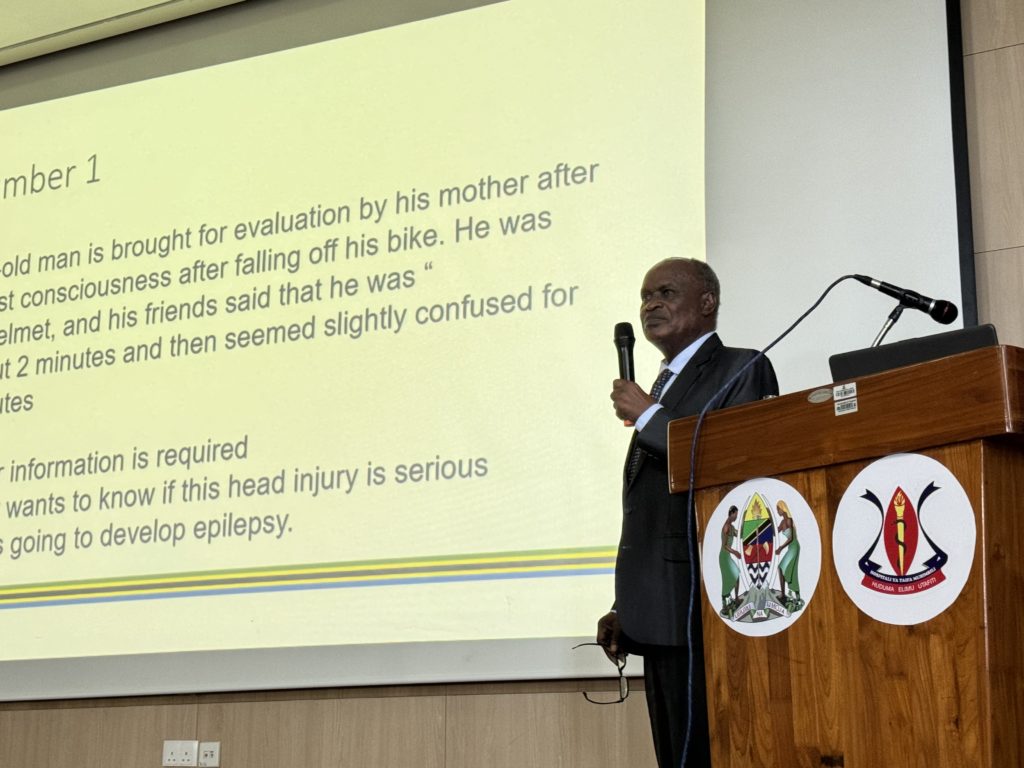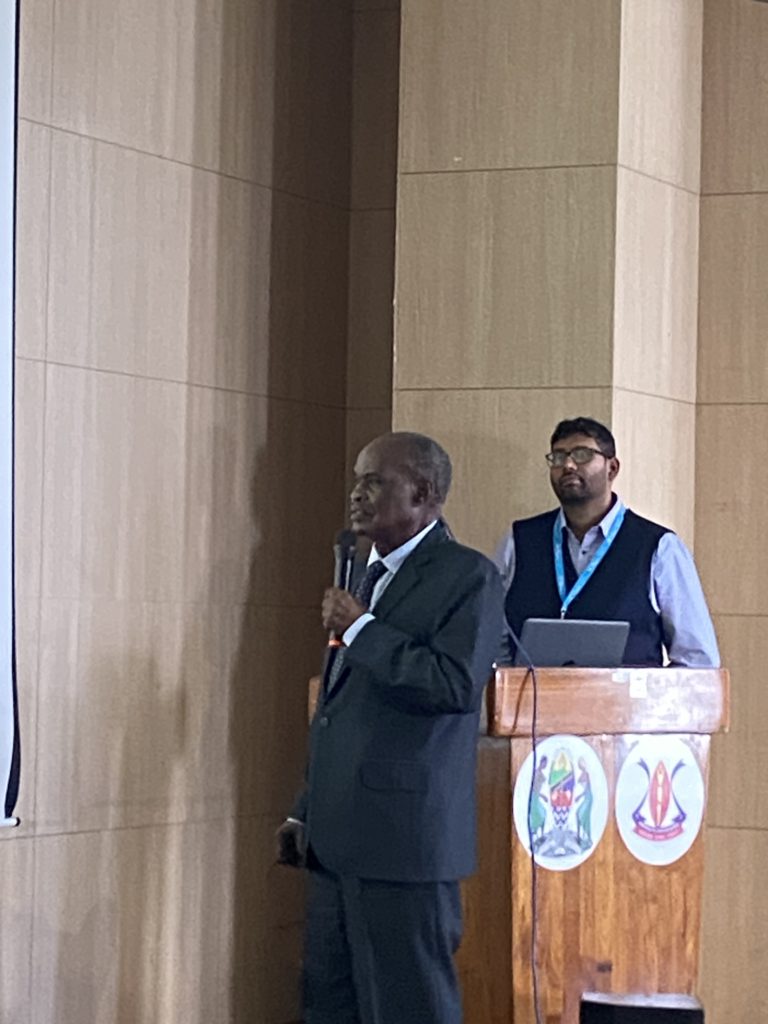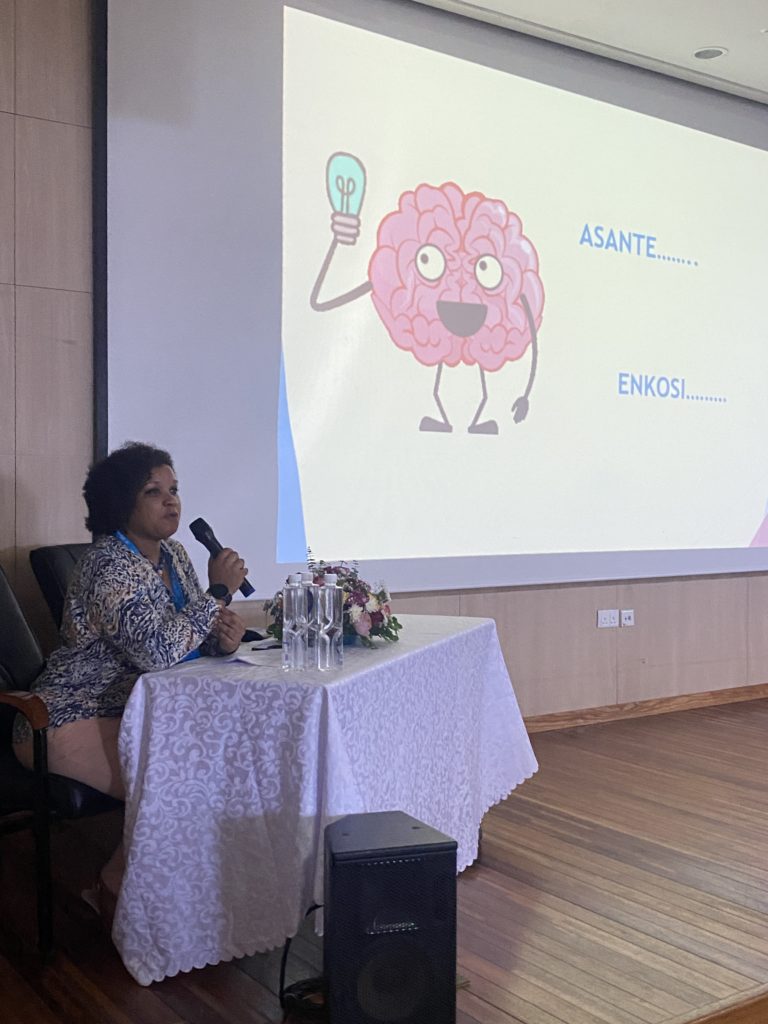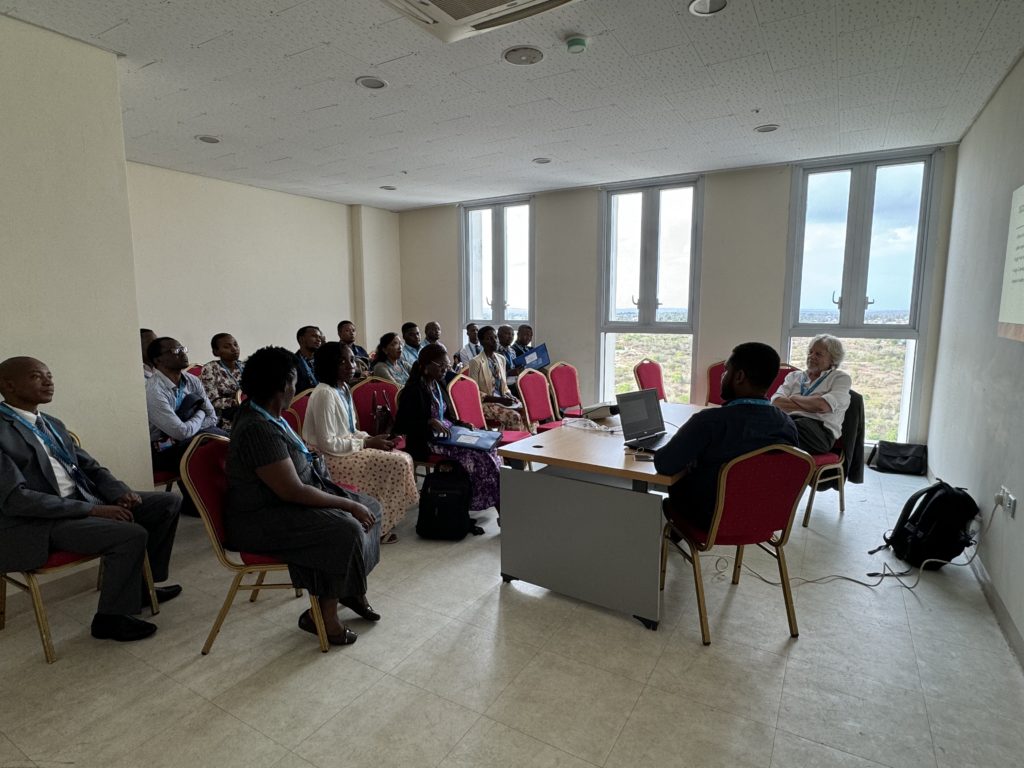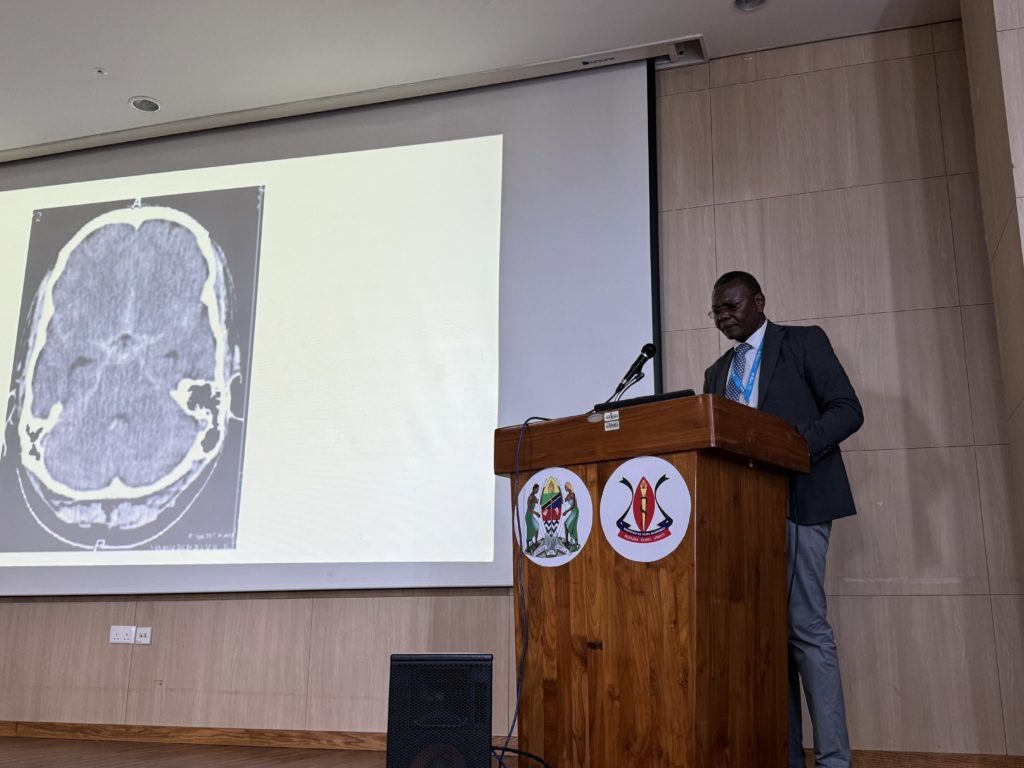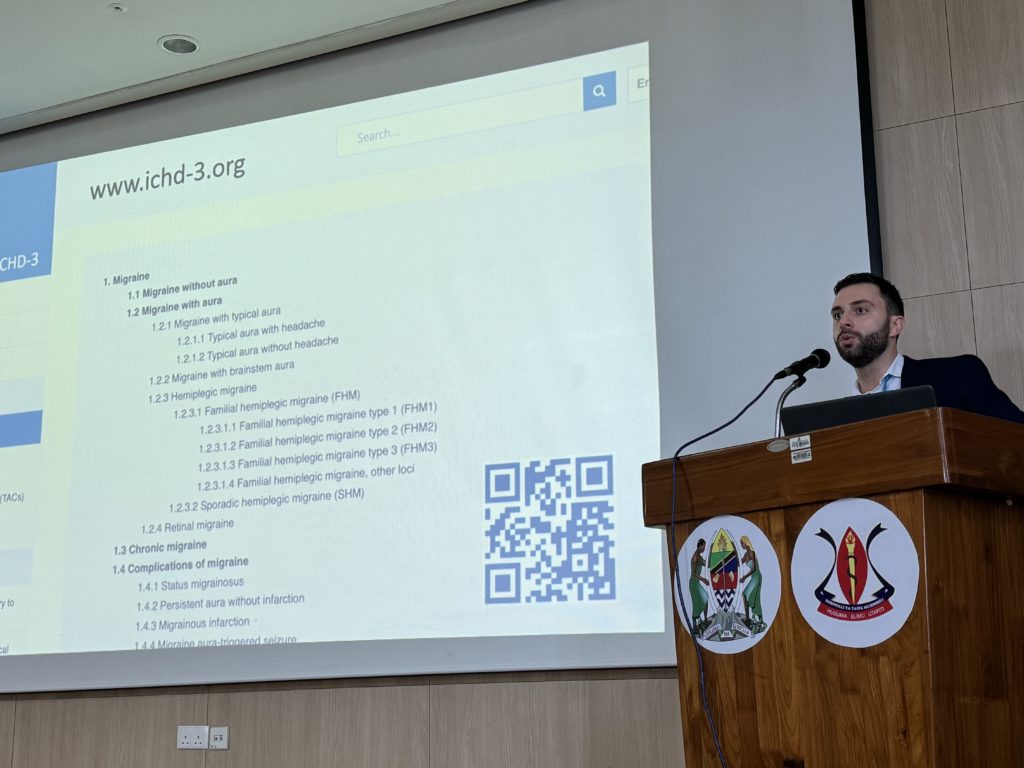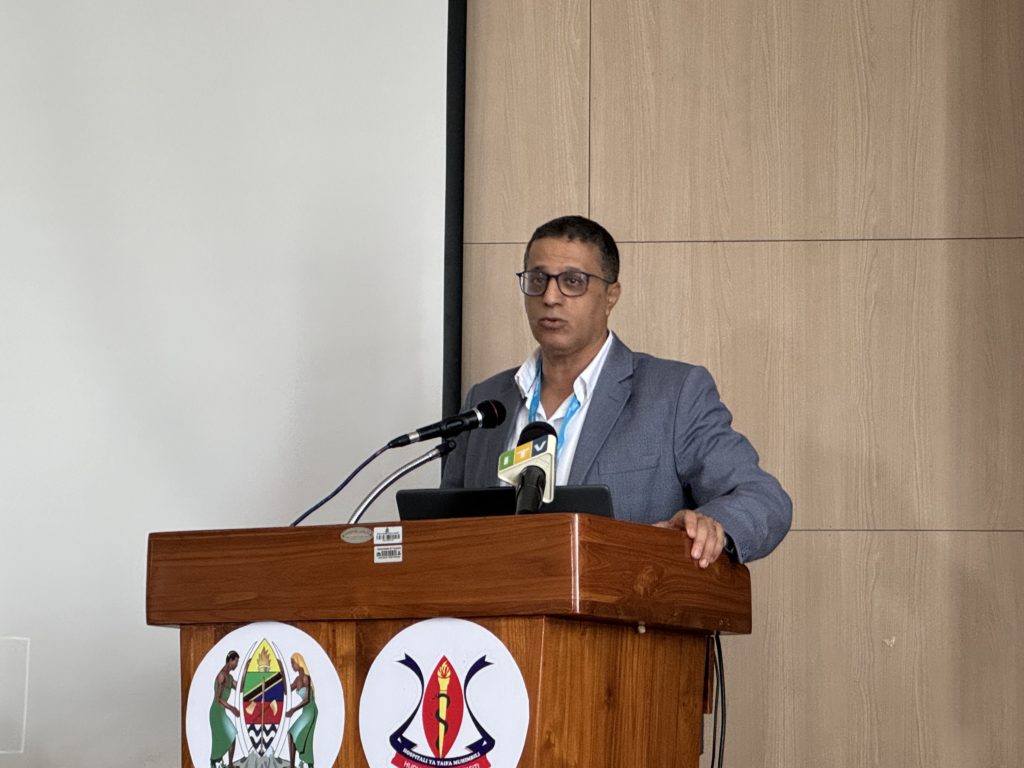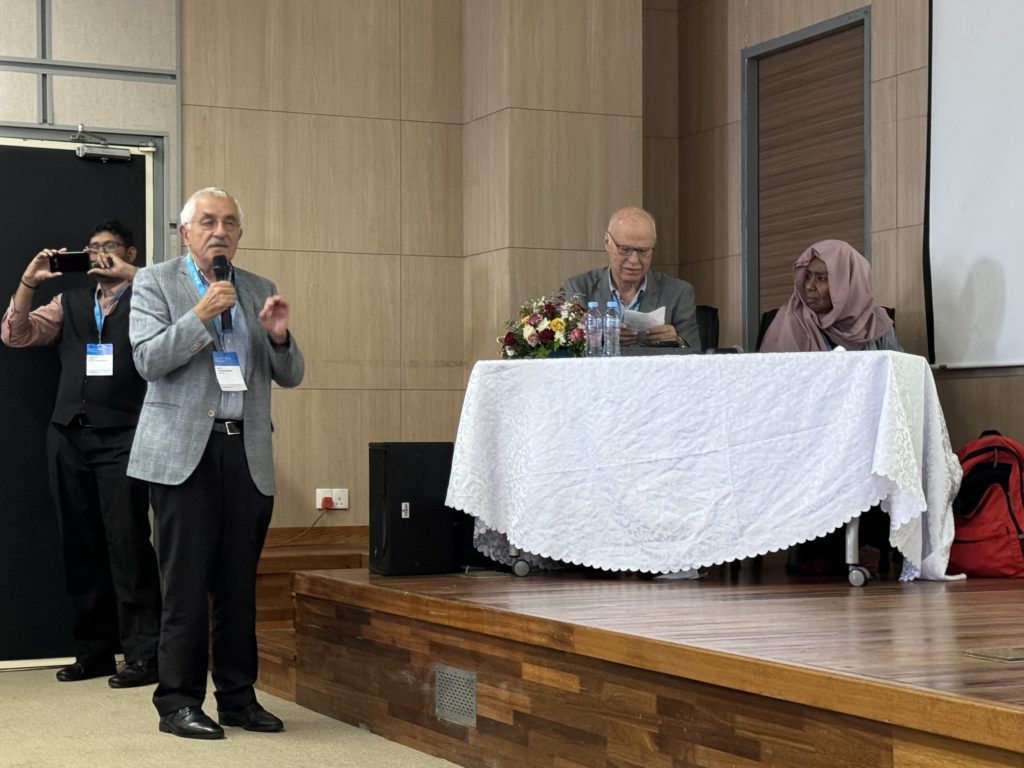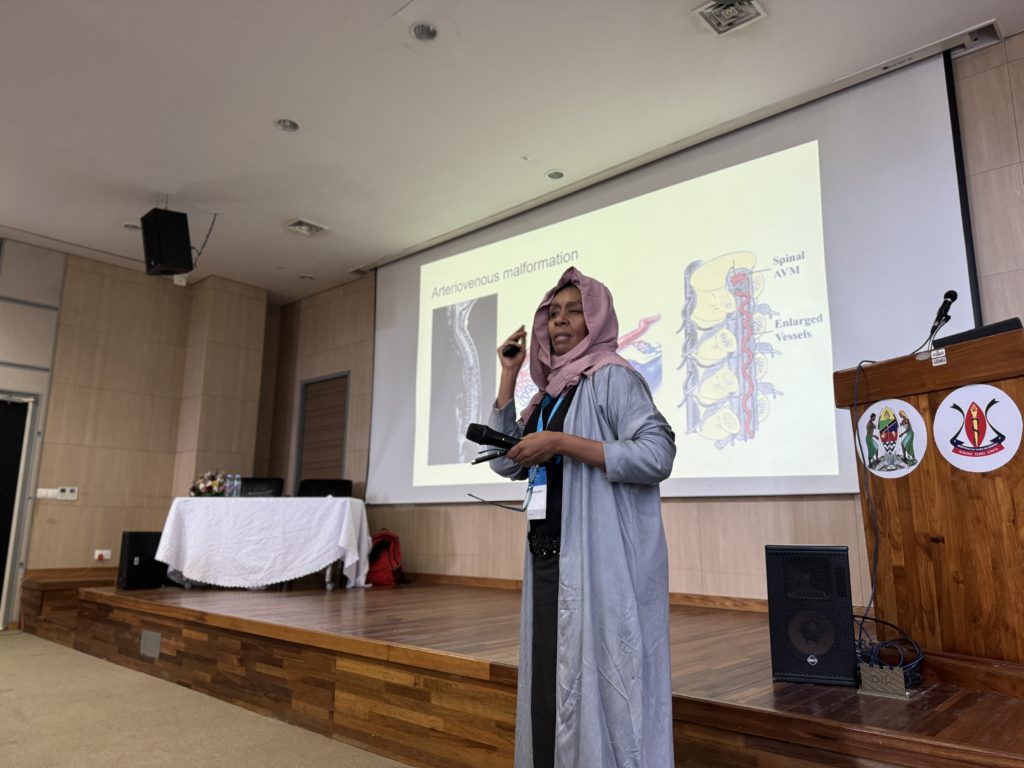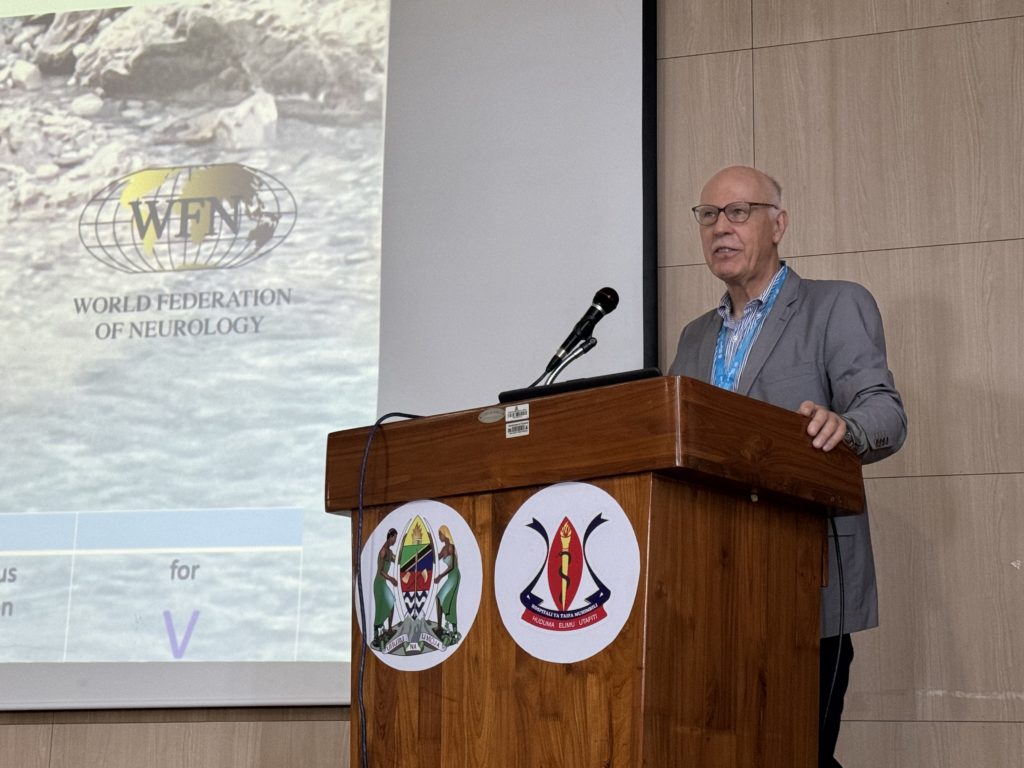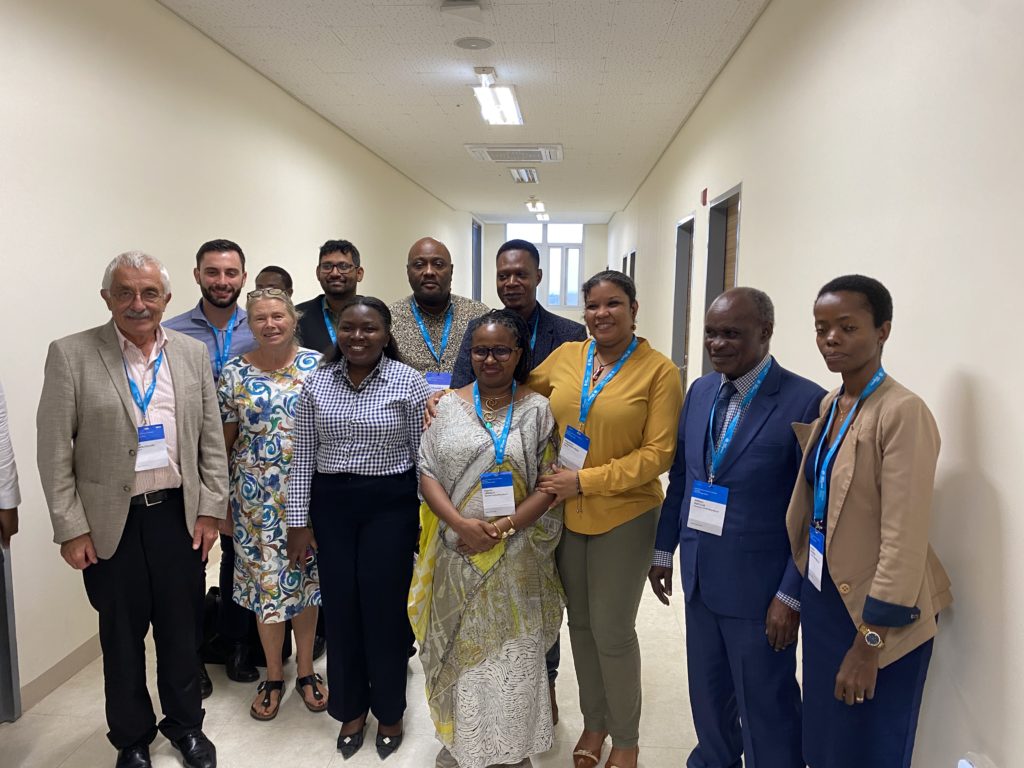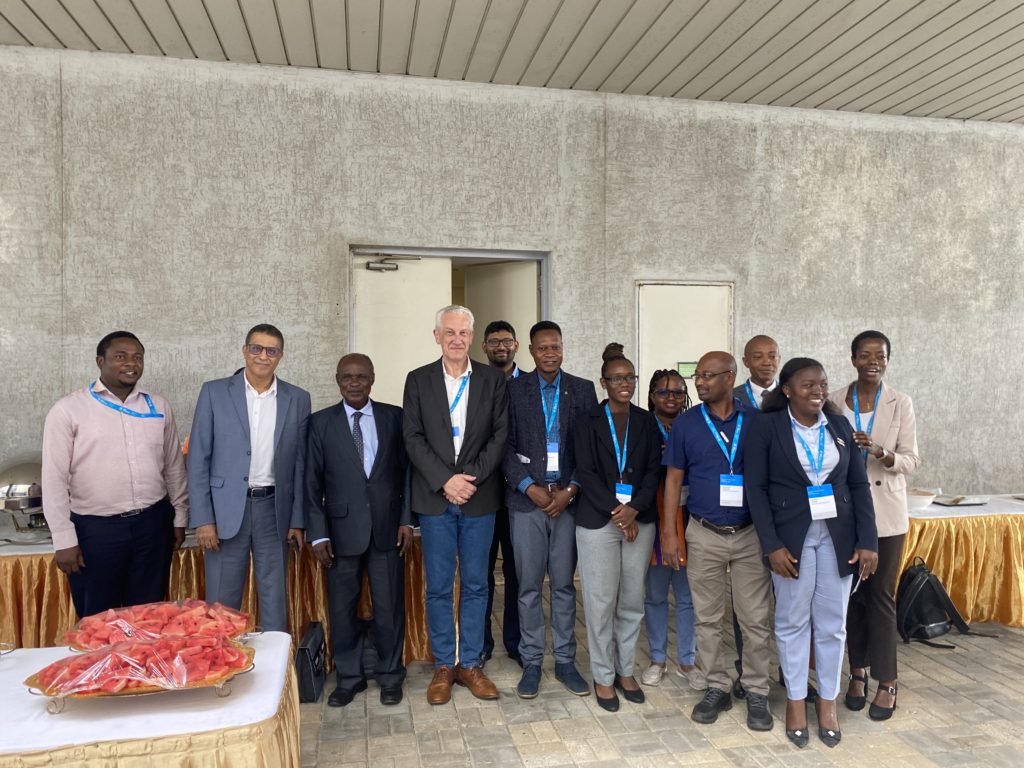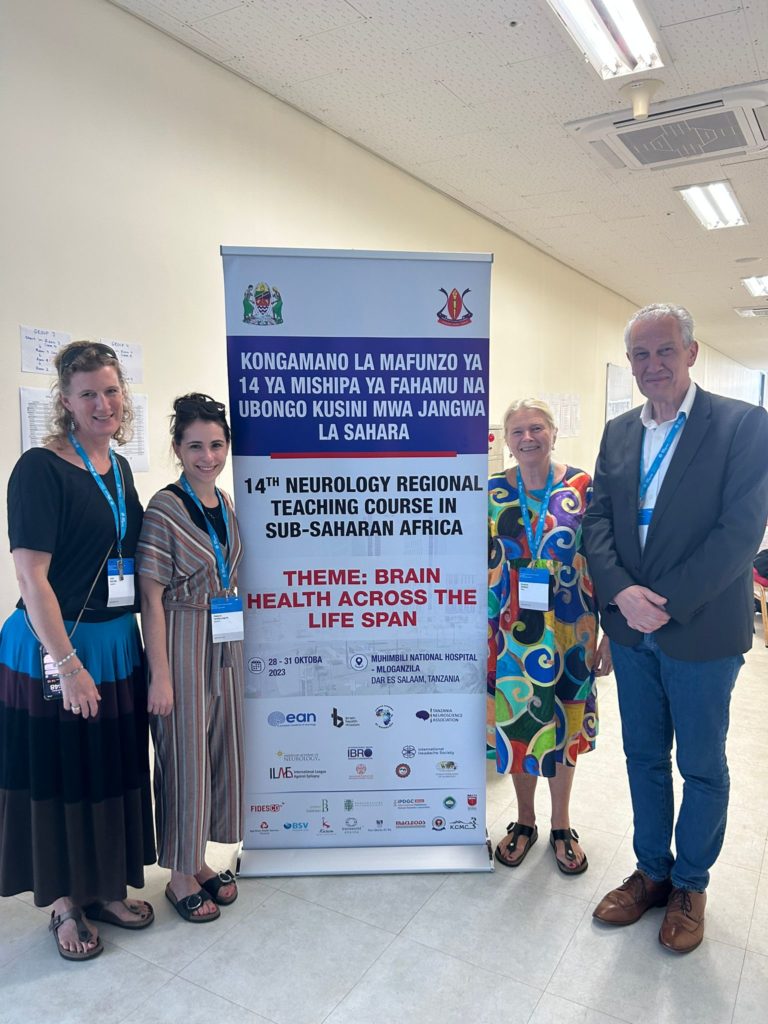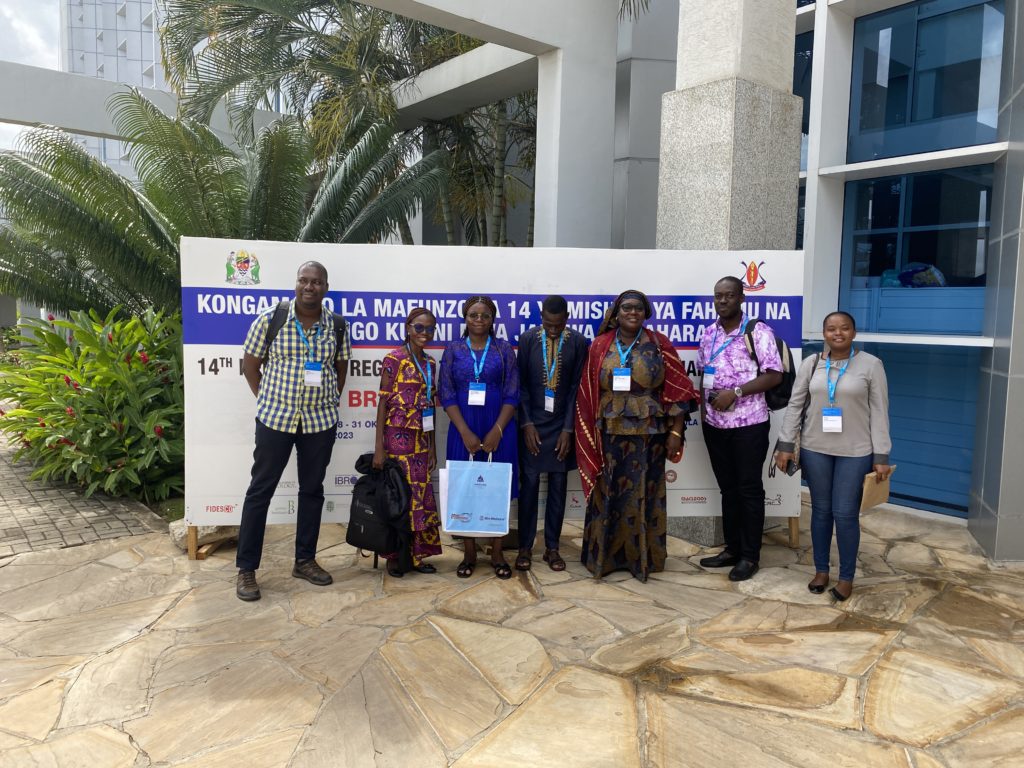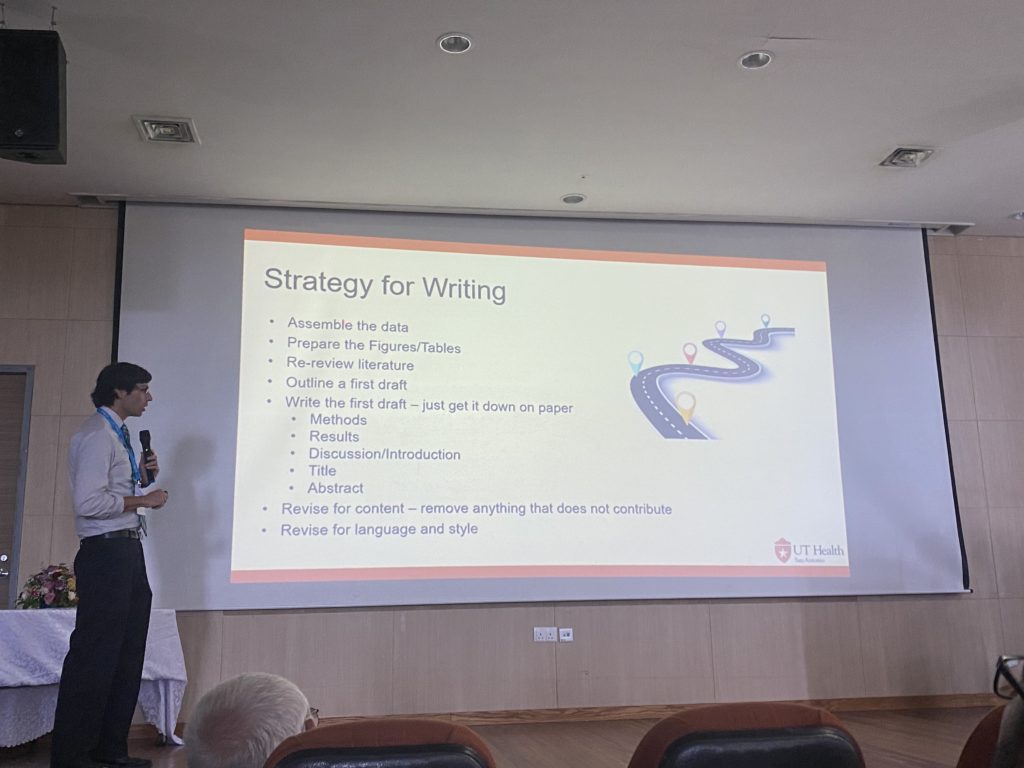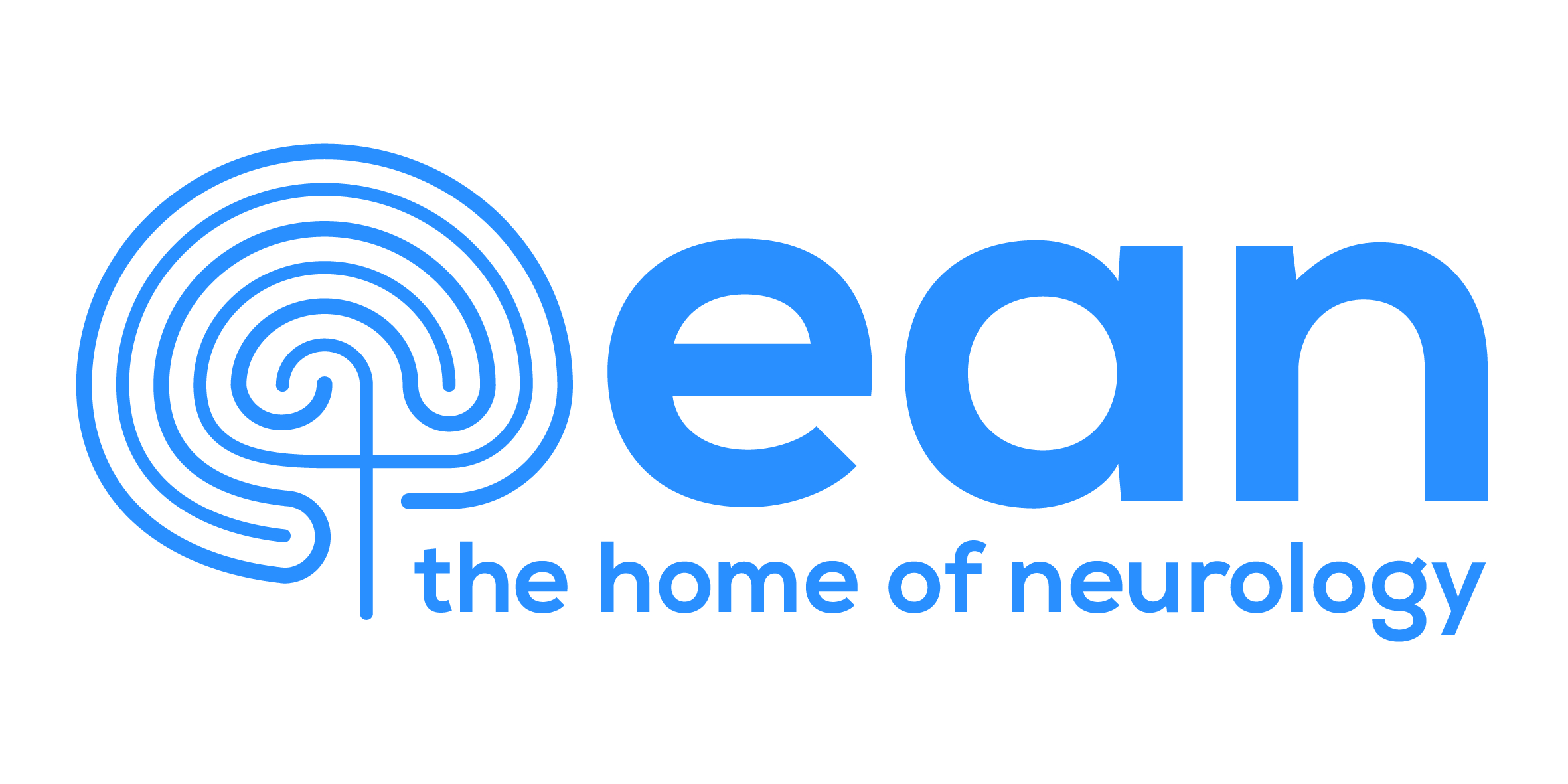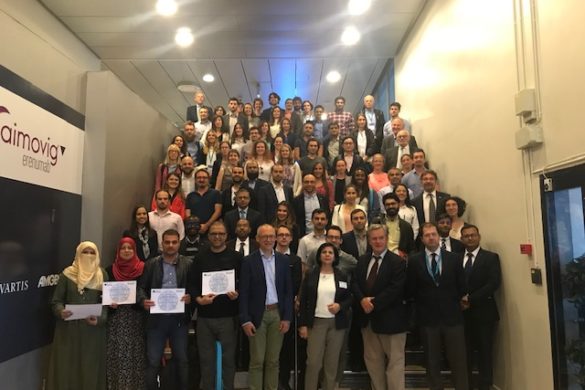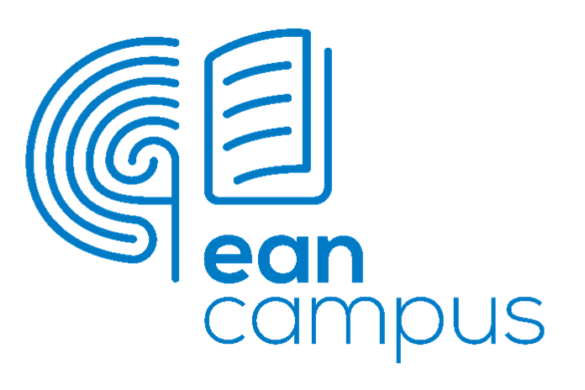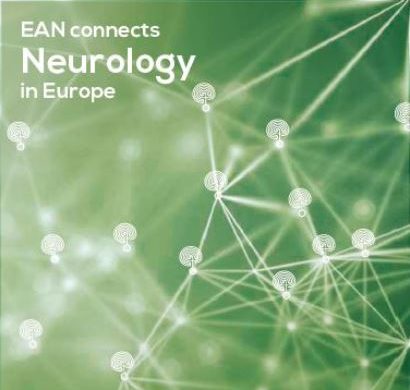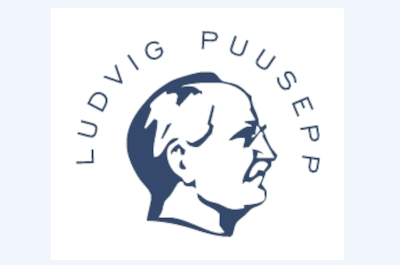by Erich Schmutzhard and David Garcia Azorin
The 14th Regional Teaching Course (RTC) in sub-Saharan Africa took place in Dar es Salaam, Tanzania on 28–31 October, 2023 and was organised in cooperation with the Tanzanian Neuroscience Association (TNA), the Tanzanian Ministry of Health and the Muhimbili National Hospital.
Altogether, 130 residents participated in the four-day event and 24 of these were invited residents from 20 sub-Saharan countries. Their participation was made possible through an additional grant of our supporting societies, the American Academy of Neurology (AAN), the World Federation of Neurology (WFN), the International Parkinson and Movement Disorder Society (MDS), the International Headache Society (HIS), and the International Brain Research Organization (IBRO).
An international faculty of African, European, and American delegates ensured an excellent standard of teaching.
The course was opened by the President of the TNA, Prof. William Matuja. Prof. Augustina Charway-Felli welcomed all on behalf of the African Academy of Neurology (AFAN). Prof. Erich Schmutzhard gave an introduction on behalf of the EAN and Prof. R. Gouider spoke for the WFN and Prof. W. Grisold.
Dr Asha Mahita, delegate for the Tanzanian Ministry of Health welcomed all to the RTC and gave her full support for the initiative. Dr Julieth Magandi, Deputy Executive Director of the Muhimbili National Hospital, expressed pleasure and gratitude in hosting this important educational initiative at the hospital.
The RTC had the overarching theme of ‘Brain health across the life span’ and addressed four major topics:
- Stroke: what can be done, what must be done
- Epilepsies and seizure disorders across all ages
- Emergency neurology across all ages with specific emphasis on history and clinical presentation
- Dementia and movement disorders across all ages with specific emphasis on history and clinical presentation
Each morning four or five lectures addressed the daily topic while the afternoons were dedicated to the discussion of clinical cases. Smaller groups of residents had the opportunity to discuss clinical cases with the local and international faculty.
Day 1 was chaired by Profs. William Matuja and Erich Schmutzhard (EAN):
An unavoidable national commitment prevented Prof. Amadou Gallo Diop (AFAN) from attending in person. He pre-recorded his lecture ‘Understanding and managing stroke: from the neuron to the community, a panoramic approach of the patient’. His brilliantly worded neuro-thoughts were well received by the audience.
Prof. Erich Schmutzhard (EAN) addressed ‘Impairment of consciousness with and without fever’. The main intentions were to stress the importance of knowing history taking, the appropriate neurological examination and the stabilisation of all vital functions while initiating the first diagnostic and therapeutic management steps. Clinical examples were given, including cases of basilary artery thrombosis, metabolic encephalopathies, and neuro-infections.
A specific sector of paediatric neurology, a very important issue in SSA, specifically paediatric stroke, was discussed by Prof. Angelina Kakooza (AFAN) in her lecture ‘Paediatric stroke: nuances of diagnosis and management, hemoglobinopathies, sickle cell disease and other conditions specific to children’. A wide overview of the topic, and the specific considerations that apply to children were revisited, particularly in the SSA setting, where some entities, such as sickle cell disease, are particularly prevalent.
Neurorehabilitation, and primary and secondary prevention of stroke, issues that deserve much more attention worldwide, were presented by Prof. Mayowa Owolabi (AFAN). He lectured on ‘Stroke: neurorehabilitation and secondary stroke prophylaxis’ within the sub-Saharan African context.
Dr Mohamed Manji (TNA) chaired the morning’s Clinical Grand Round, also dedicated to stroke. Highly interesting and instructive cases were the basis for a vivid discussion.
The first ‘How to’ session, by David Garcia Azorin (EAN), covered the topic: ‘How to prepare a case and/or scientific presentation’. He gave some practical tips about how to deliver a presentation, either presenting a topic, or a clinical case.
The second day, dedicated to ‘Epilepsies and seizure disorders across all ages’ was chaired by EAN President Prof. Paul Boon (EAN) and Prof. Charway-Felli.
In his lecture ‘Epilepsies: semiology’, Prof. Boon explained the importance of the clinical evaluation of patients and captured the attendees’ interest with many videos of representative cases. The residents learnt that some epileptic syndromes and focal seizures may present with a typical semiology that it is important to know.
Prof. Marieke Dekker (EAN/AFAN) addressed the subject of ‘First seizure management’. She reminded everyone that a careful review of the patient’s prior medical history, seizure characteristics and comorbidities is important in the decision about when and how treatment should be started.
In her lecture about ‘Pharmacological management of epilepsy – choosing the ASM, rational polytherapy and pharmaco-resistant epilepsy’ Prof. Charway-Felli informed participants on the optimal selection of drugs, with special attention to treatment-resistant cases, and which drugs or substances are more suitable to be combined.
Prof. Lawrence Tucker (AFAN) showed, in his talk on ‘Contemporary and appropriate use of technology in the diagnosis and management of epilepsy’, that the diagnosis of epilepsy is supported by additional exams, mainly electroencephalography. He convinced the audience that EEG is an accessible technique that can be learnt by most healthcare providers, especially neurologists. He leads a training programme with vast experience that can be taken online (https://studyeegonline.com/).
Dr Fikile Ngqotso (International League Against Epilepsy) provided an update on ‘Status epilepticus and NORSE: diagnostic workup and emergency management’. Her talk dealt with the most difficult part of the treatment of epilepsy: status epilepticus. An overview of the different exams to keep in mind in these patients and the treatment options was brilliantly done.
In the grand rounds, the students loved the clinical cases that were shown by Prof. Matuja, and both residents and lecturers tried to find the solution to the presented enigmas.
The ‘How to’ session was held virtually by Prof. Gallo Diop, who reviewed how to apply for a scientific grant. He emphasised why doing research is important and how our young colleagues should start building a career in neuroscience research.
The third day was dedicated to ‘Emergency neurology across all ages with specific emphasis on history and clinical presentation’, chaired by Prof. Wolfgang Grisold (WFN) and Prof. Sarah Misbah El-Sadig (AFAN)
Dr Daniele Martinelli (IHS) spoke about ‘Acute headache with and without fever’. This highly important issue of life-threatening secondary headaches was discussed very comprehensively and clinically oriented and put into the context of the day’s topic of emergency neurology.
Prof. Osheik Seidi (AFAN) did his presentation on ‘Diagnostic and therapeutic acute care stroke management, including stroke in infectious diseases’, in which he highlighted that in those settings where some infectious diseases are highly prevalent, HIV and TBC must always be included in the differential diagnosis. Thanks to his ample expertise, the residents received valuable tips that they will not forget.
Prof. Riadh Gouider (PAUNS/WFN) spoke about ‘Acute confusional state with and without fever’. He delineated the wide spectrum of delirium, its causes, differential diagnostic and acute care strategies, and causes ranging from substance withdrawal to encephalitis.
Prof. Misbah El-Sadig gave an outstanding presentation on ‘Acute paraparesis with and without fever’. This complex topic covered a wide differential diagnosis on a syndrome that may threaten patients’ lives. The residents enjoyed the personal views and thoughts in this presentation.
Prof. Grisold introduced the work of the WFN and discussed ‘Acute neuro-myopathies’. He covered all aspects in clinical presentation of these diseases, addressing GBS, myositides, metabolic derangements, paraneoplastic diseases and many more.
The Clinical Grand Rounds were run by Prof. Eric Aris (TNA) and covered neurological emergencies. He captured the residents’ interest with eye-opening cases.
The third ‘How to’ session was presented by Prof. Grisold, explaining how a scientific project should be conceived, from the beginning to the end, and he showed the different resources that can be used by the residents to help them better prepare themselves.
This day concluded with a video dinner, with cases on movement disorders and epilepsy, where amazing cases complemented a nice local dinner, offering a great opportunity for interaction between colleagues and the faculty.
On the last day, ‘Dementias and Movement disorders, with particular emphasis on history and clinical presentation’ were presented and chaired by Kigocha Okengo (TNA) & Oluwadamilola Omolara Ojo (MDS).
Prof. S.M. Paddick (IBRO) brought news on the topic of ‘Cognitive aging – from normal aging to dementia’. She stressed the importance of socially and societally adapted screening and diagnostic tools, pointing out that most evaluation tools and scores have been tested in American or European populations. She referred to the specifics of aging in east Africa, having vast experience from her scientific work in Tanzania.
‘Practical tools in the evaluation of cognitive impairment’ were discussed by Prof. L. Gwaunza (AFAN), including all the specifics in evaluation tools and possibilities in the rapidly aging society of sub-Saharan Africa.
Prof. Lara Ojo (MDS) gave two lectures on ‘Movement disorders and cognitive decline’ and ‘Treatment of PD and other Parkinsonian syndromes’. Cases of movement disorders, PD and Parkinsonian syndromes are rapidly increasing and are therefore, becoming more important diagnoses in sub-Saharan Africa. All aspects, including clinical presentation of movement disorders with and without cognitive decline, etiologies (from idiopathic to infectious and environment associated), diagnostic tools, and therapeutic options formed the backbone of her two lectures.
The important issue of ‘Management of advanced neurodegenerative diseases: palliative care in and out of hospital setting’ was presented by Prof. Jeremy Tanner (AAN). In his outstanding lecture, the management of patients with advanced neurodegenerative diseases was discussed and stressed in particular within the correct social and societal context, palliative care in such patients, i.e., the best possible supportive care, being essential, irrespective of societal commitments.
The Clinical Grand Rounds were done by Kigocha Okengo (TNA), who showed some local cases about cognitive impairment and movement disorders. She challenged the students with interesting and complex cases, with a nice discussion afterwards.
Prof. Tanner shared his expertise on how to write a scientific paper, including practical points and best practice ideas with the residents and attendees.
Our special thanks – Asante sana – go to the local organising team, especially Prof. W. Matuja, Prof. E. Aris, Drs K. Okengo, M. Manji, M. Dekker and S. Urasa, as well as to Drs Henrika Kimambo, Brighton Mushengezi, Jovis Magesi, Marcelinus Kilanga, Patience Njenje, and Mohammed Mnacho. Their incredible help was key to a wonderful and extremely successful Regional Teaching Course in Dar es Salaam, Tanzania.
The EAN and AFAN would also like to thank all supporting societies who helped to make this course possible with their contributions.
AAN, IBRO, IHS, ILAE, MDS, PAUNS, WFN
**************
Find out more about benefits for African neurologists
Free RRFS/individual membership is given to residents of low and lower-middle income countries from sub-Saharan Africa.

